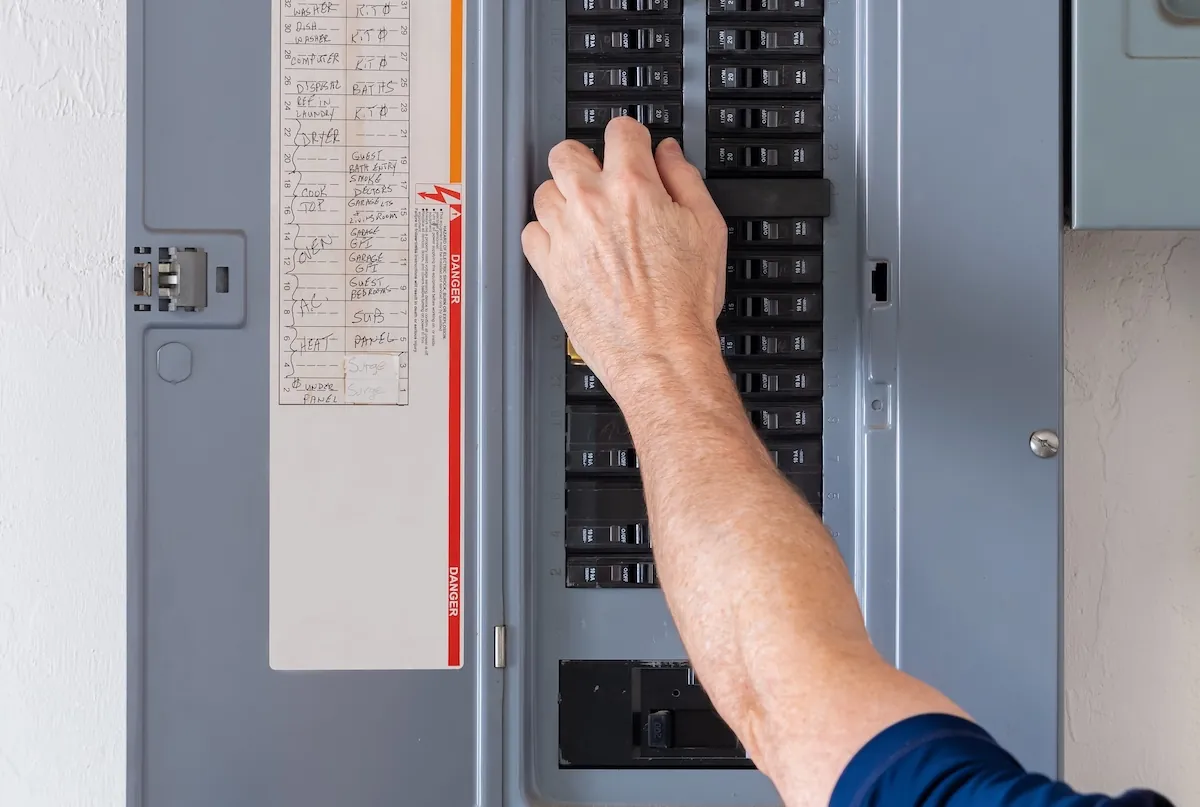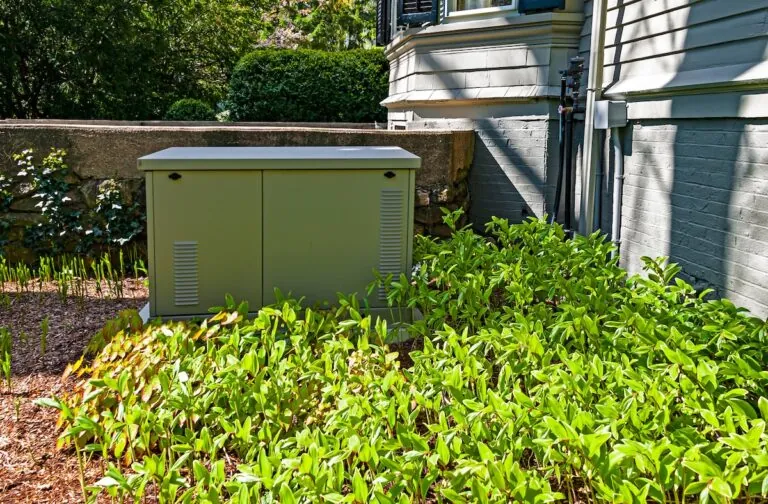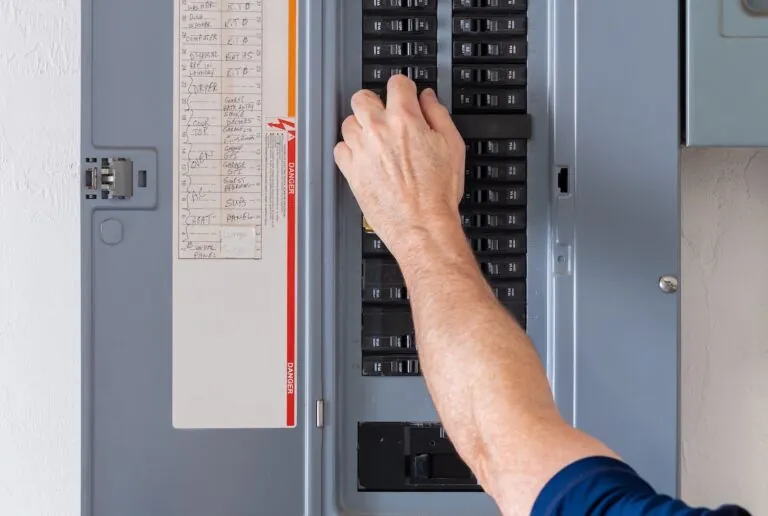If you’re considering a fuse box replacement, it’s likely because you’ve experienced electrical issues or want to bring your home up to modern safety standards. Replacing an old fuse box is a key upgrade that improves both the reliability and safety of your electrical system.
In this guide, you’ll learn:
- Why replacing your fuse box might be necessary.
- What’s involved in the replacement process.
- How to know when it’s time to call a professional electrician.
Let’s break down the basics so you can make an informed decision for your home.
🤔 What Is a Fuse Box?
Before diving into replacement, it helps to understand what a fuse box does and how it differs from today’s electrical panels.

The Purpose of a Fuse Box
A fuse box is the original version of a home’s electrical control center. It distributes electricity throughout your home and protects circuits from overload by using fuses that “blow” or break the circuit when current exceeds safe levels.
Common in Older Homes
Fuse boxes were common in homes built before the 1970s. While they served their purpose well for decades, they aren’t designed to handle the demands of modern homes filled with electronics, HVAC systems, and large appliances.
Why They’re Being Phased Out
Modern circuit breaker panels offer the same protective function but can be reset rather than replaced. Fuse boxes lack flexibility, often don’t meet current electrical codes, and pose safety concerns in high-load environments.
💡 Why Homeowners Replace Their Fuse Box
Upgrading to a modern circuit breaker panel is about more than convenience—it’s a necessary step toward safety and functionality.
- Safety concerns: Old fuse boxes may overheat, have loose wiring, or be improperly modified over the years.
- Increased demand: New appliances and electronics often exceed the capacity of an outdated fuse system.
- Home improvements: Remodeling or adding square footage often requires electrical panel upgrades to handle the increased load.
- Insurance and inspections: Many insurance companies require panel upgrades before offering coverage, and home inspections often flag old fuse boxes.
Replacing your fuse box not only protects your home from electrical fires but may also increase your home’s value and insurability.
⚠️ 5 Signs You May Need a Fuse Box Replacement
If you’re experiencing any of these issues, your fuse box might be due for an upgrade:
- Frequent blown fuses: Constantly replacing fuses is a clear sign the system is overloaded or deteriorating.
- Flickering or dimming lights: This can indicate poor electrical distribution or voltage inconsistencies.
- Warm or buzzing panel: Overheating and strange noises are red flags that should be checked by a licensed electrician.
- No GFCI protection: Older systems often lack ground fault circuit interrupters, which are standard in modern panels for wet areas.
- Limited capacity: If you’re maxed out on fuses or have added high-demand devices, your current panel may not be enough.
These signs suggest your electrical system isn’t keeping up with the needs of your household.
⭐️ What’s Involved in the Replacement Process?
Replacing a fuse box is a technical process that should always be handled by a licensed professional. Here’s what typically happens.

Inspection and Assessment
Your electrician will assess the condition of the current fuse box, check the main service line, and determine what upgrades are needed. They’ll also evaluate the overall load on your system and discuss future needs.
Panel Upgrade
The fuse box will be replaced with a modern circuit breaker panel that includes labeled breakers, updated wiring connections, and safety devices like surge protection and GFCI/AFCI breakers.
Permit and Inspection
Fuse box replacement requires a local permit and inspection to ensure everything is up to code. Your electrician will handle the permitting process and coordinate with inspectors.
Power Shutoff and Installation
Power to the home is shut off temporarily while the upgrade takes place. Installation may take several hours, depending on the complexity and the condition of the wiring.
🔌 What Kind of Electrical Panel Should You Install?
Choosing the right replacement depends on your home’s current and future power needs.
- 200-amp service: This is the modern standard for most homes and supports central air conditioning, EV chargers, and more.
- Breaker panel vs. load center: Some homes may benefit from a subpanel or secondary panel if additional circuits are needed.
- Smart panels: Newer systems may offer energy monitoring and remote breaker control, which adds convenience and insight into energy use.
An electrician can help determine the right size and type based on your household’s usage and future plans.
✅ Benefits of Upgrading Your Fuse Box
A fuse box replacement isn’t just about avoiding hassle—it’s a long-term investment in your home’s safety and functionality.
- Improved safety: Breaker panels are safer than fuse boxes, reducing the risk of electrical fires or shock.
- More capacity: New panels can handle today’s appliances and allow room for future upgrades or expansions.
- Code compliance: Upgrading ensures your home meets current safety standards and avoids violations during resale.
- Lower insurance risk: Many insurance companies view outdated fuse boxes as fire hazards and may deny coverage without an upgrade.
- Increased home value: Buyers are more confident in homes with modern, up-to-date systems.
🛠️ Maintenance After Fuse Box Replacement
Even with a new system, occasional upkeep helps ensure long-term performance.
Periodic Inspections
Have your panel checked every few years or sooner if you notice flickering lights, frequent breaker trips, or other electrical inconsistencies. A licensed electrician will look for loose wires, overheating, corrosion, or outdated components that could compromise your system. Regular inspections also help you stay ahead of small issues before they become serious safety risks.
Know Your Circuit Labels
Labeling each breaker clearly is essential for home safety and convenience. When a circuit trips or maintenance is needed, you’ll know exactly which part of the house is affected. This simple step also helps electricians work faster and reduces confusion during emergencies.
Avoid Overloading Circuits
Even upgraded panels have their limits, and overloading a circuit can cause breakers to trip repeatedly or even damage appliances. Spread high-wattage devices like space heaters, microwaves, or air conditioners across different outlets when possible. Understanding your panel’s capacity and using circuits responsibly helps preserve your system and avoid unnecessary repairs.

🤝 Why Genz-Ryan Is the Team You Can Trust
When it comes to electrical work, you need a partner that puts safety, reliability, and customer satisfaction first. At Genz-Ryan, we’ve been helping homeowners make smart, lasting upgrades for decades—and fuse box replacement is no exception.
Fuse box replacement might sound like a big job, but it’s one of the smartest ways to modernize your home and protect your family. If your electrical system is outdated, overloaded, or underperforming, don’t wait for a major problem to act.
Contact Genz-Ryan today to schedule an inspection or consultation. We’ll help you choose the right panel, handle the permitting and installation, and keep your home safe for years to come.








